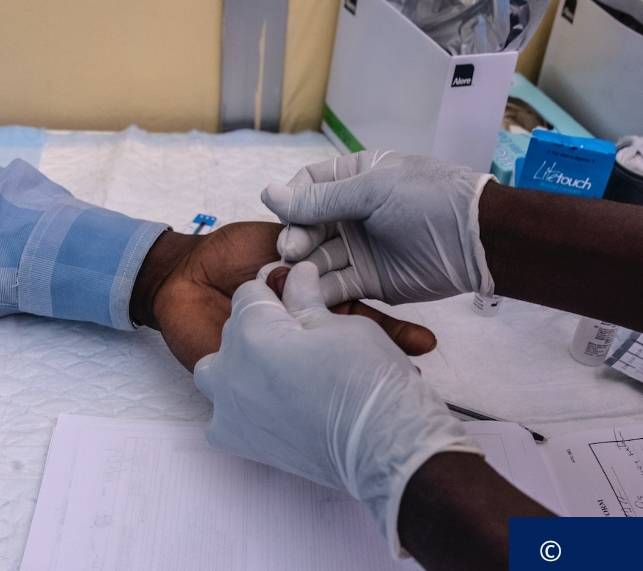In significant groundbreaking landmark to maintain health independence in Africa, the World Health Organization (WHO) and the Medicines Patent Pool (MPP) have signed a sublicensing agreement with Nigerian health tech company Codix Bio to begin making rapid diagnostic tests (RDTs).
The deal allows Codix Bio to use advanced technology from SD Biosensor, a global diagnostics firm.
The move will help boost local production of quick and reliable tests for HIV, with the ability to expand to malaria, syphilis, and other diseases.
These tests work without special equipment, deliver results in 20 minutes, and are especially suited for low- and middle-income countries.
Read Also: WHO calls for urgent action to stop FGM in new guidelines
“This landmark agreement is for local healthcare manufacturing in Africa,” said Codix Bio CEO Sammy Ogunjimi. “With support from WHO and MPP, we are committed to producing high-quality, rapid diagnostic tests that can transform access to timely diagnosis, not just in Nigeria, but across the continent.”
This is the first sublicense under the Health Technology Access Programme (HTAP), formerly known as C-TAP. HTAP aims to close health access gaps by supporting local producers with licenses, technology, and training.
Dr. Yukiko Nakatani of WHO praised the move as key to building fairer and stronger global health systems.
MPP Executive Director Charles Gore said the agreement shows how voluntary licensing can build supply resilience in underserved regions.
Codix Bio was chosen after an open call for LMIC manufacturers. WHO and MPP will continue to support the company and may soon add more sublicensees.
The push for local production follows lessons from the COVID-19 pandemic, which exposed how heavily LMICs depend on imported medical supplies.
With support from partners like Africa CDC, Unitaid, and the Global Fund, this deal is a promising start toward better pandemic preparedness and health security in Africa.



